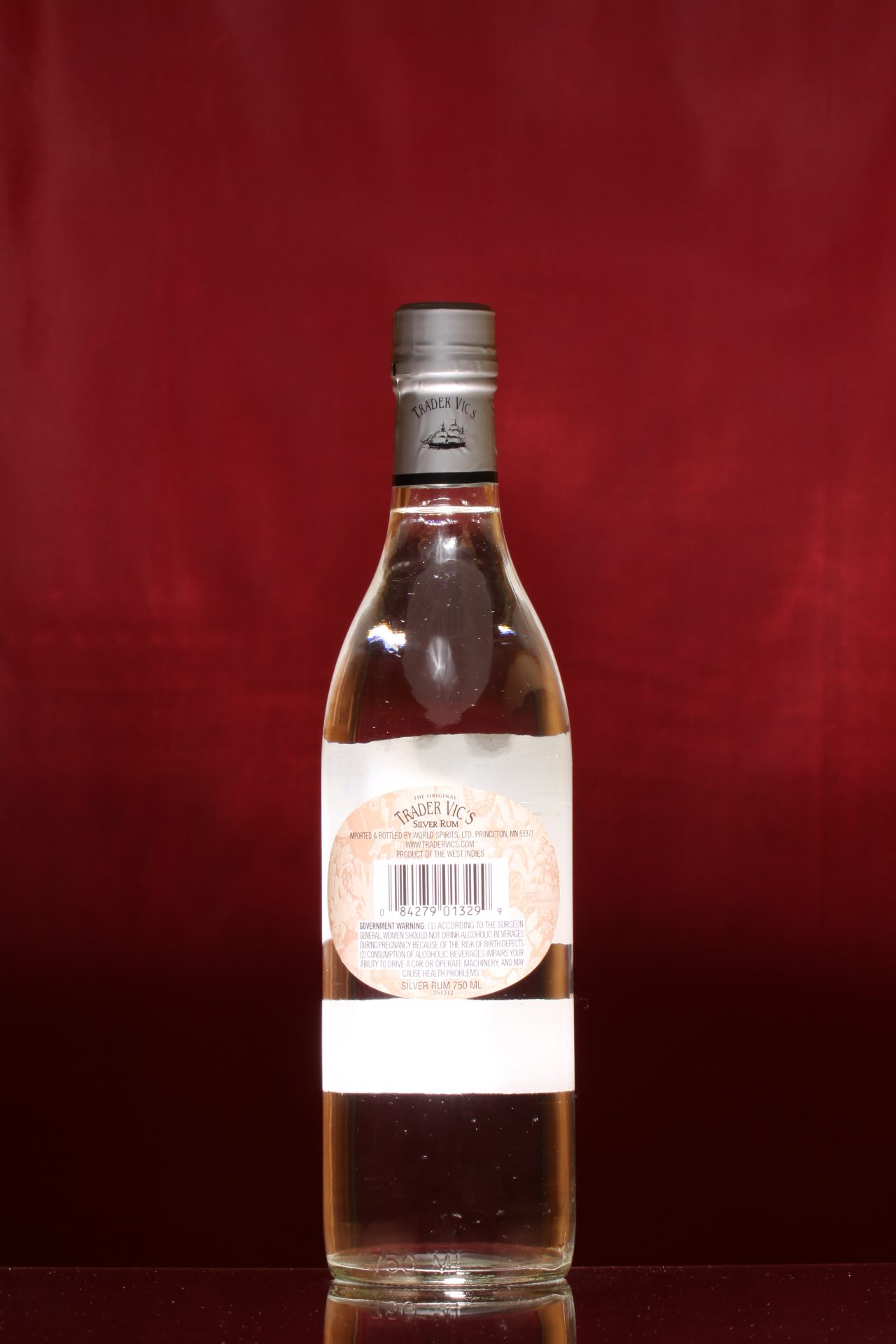TRADER VIC’S RUM
| Type: | RUM |
| Flavor: | Silver |
| Made From: | Distilled From Molasses |
| Produced By: | WORLD SPIRITS, LTD. |
| Origin: | Princeton, Mn. U.S.A. |
| Proof: | 80 |
| Age: | 0 |
| Importer: | Bottled In The U.S.A. |
| Location: | Princeton, Mn. |
Victor J. “Trader Vic” Bergeron packed more excitement, enjoyment and exotica into his 82 years than any three men.
It all started when Victor Jules Bergeron was a waiter at San Francisco’s Fairmont Hotel and owned a grocery store on San Pablo Avenue in Oakland. His son – Victor, (Jr.) – grew up loving the food business, living with the family in an apartment above the store and helping out downstairs. A childhood accident cost him a leg, but left him with a penchant for telling colorful stories.
In 1932, with a nest egg of $700 and carpentry help from his wife’s brothers – plus his mother’s pot-bellied stove and oven – the ebullient Victor built a cozy pub across the street from the store and called it Hinky Dink’s. His pungent vocabulary and ribald air made him a popular host, as did his potent tropical cocktail concoctions and delicious Americanized adaptations of Polynesian food.
Soon one of the most popular watering holes in Northern California’s Bay Area, the place attracted sophisticated urbanites like writers Herb Caen and Lucien Beebe. By 1936, when Caen wittily wrote that the “best restaurant in San Francisco is in Oakland,” Vic had become “The Trader” and Hinky Dink’s had become “Trader Vic’s,” complete with a showpiece Chinese oven. Its South Pacific theme “intrigues everyone. You think of beaches and moonlight and pretty girls. It is complete escape,” Vic said at the time. Among Trader Vic’s more tantalizing legacies is the original Mai Tai, the bracingly refreshing rum cocktail he created at the restaurant in 1944 and introduced to the Hawaiian islands in the 1950s. Tahitian for “the very best,” Mai Tai became the slogan for his entire operation.
In creating his new cocktail, Trader Vic employed what was becoming the ever-present hallmark of all his food and beverage recipes: a light touch, meant to enhance but never disguise nor overpower the fine original taste of his main ingredients. All of his recipes reflect the man’s own personality: distinctive, lighthearted and memorable.
By 1946, the world had beaten a path to Vic’s door, prompting Lucien Beebe to write in an introduction to “Trader Vic’s Book of Food and Drink” published by Doubleday that year: “Trader Vic’s is … more than an Oakland institution. Its influence is as wide as the Pacific and as deep as a Myrtle Bank punch. Vic’s trading post is long on atmosphere, and it is possible for the ambitious patron with a talent for chaos to get into more trouble with obsolete anchors, coiled hausers of boa-constrictor dimensions, fish nets, stuffed sharks… Hawaiian ceremonial costumes, tribal drums, boathooks and small bore cannon than the waiters can drag him out of in a week.”


